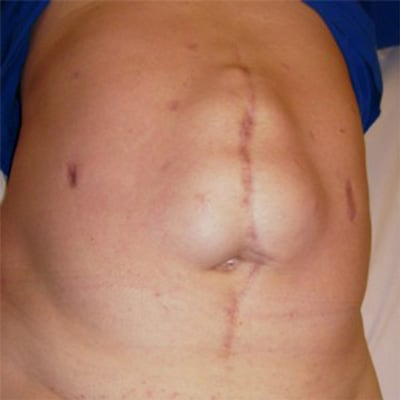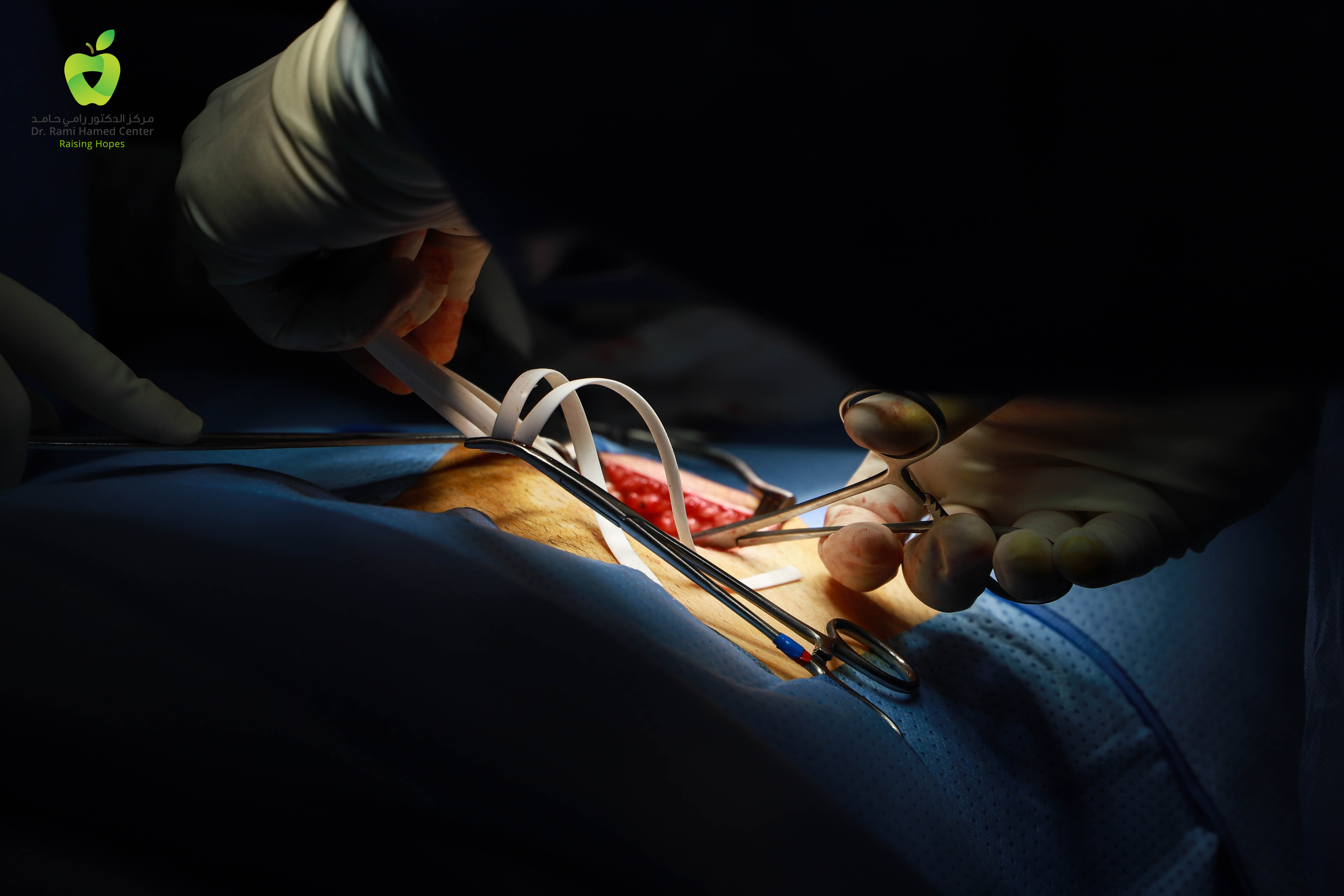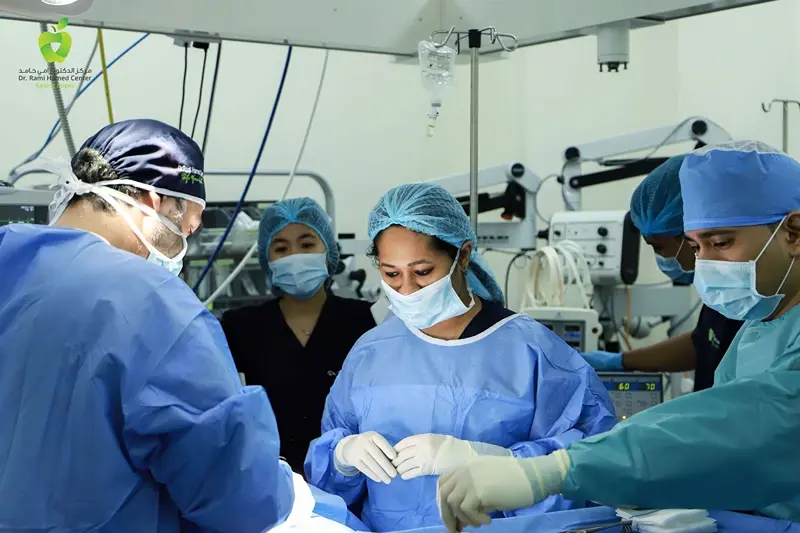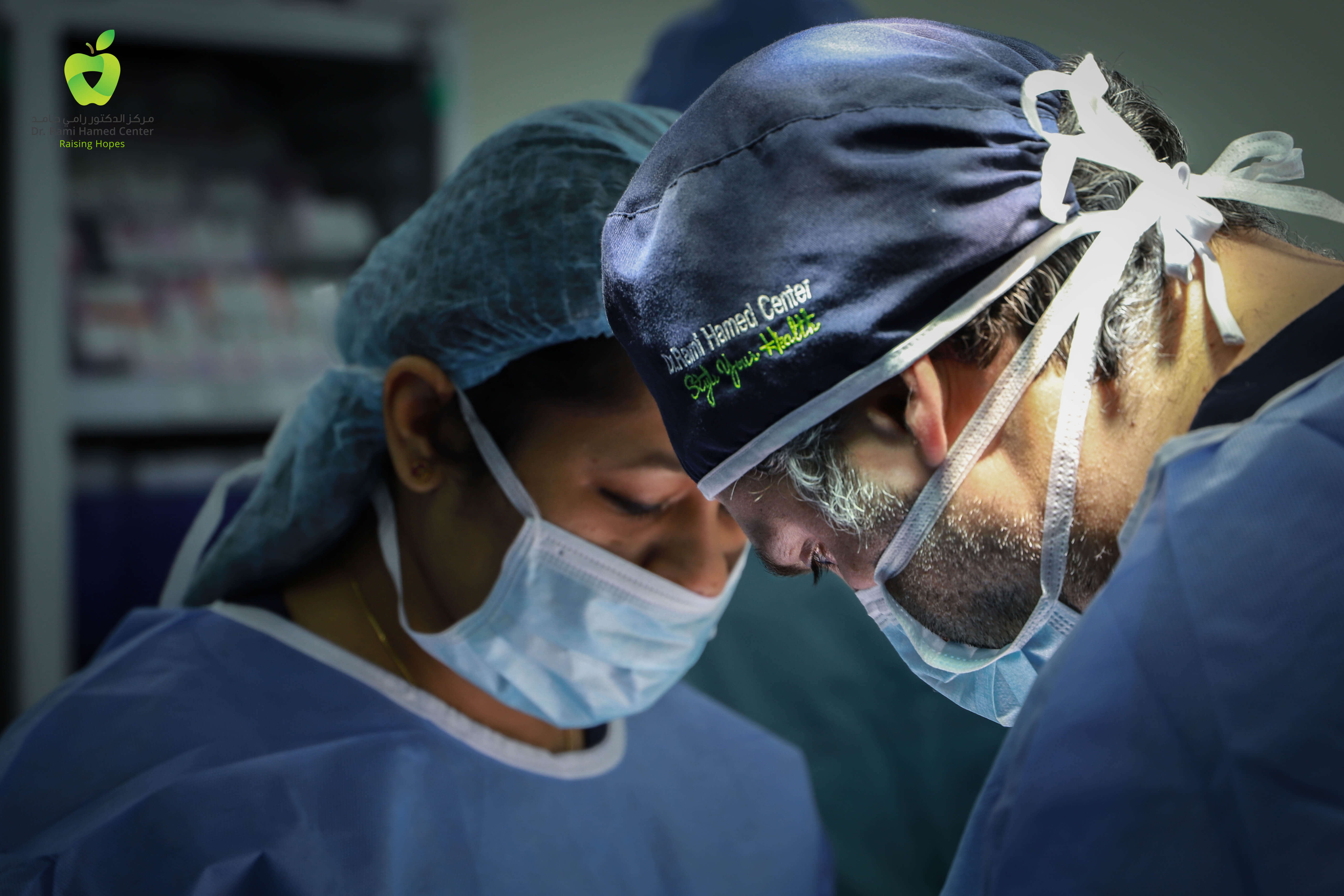Incisional Hernia - Dubai Hernia Surgery Clinic DRHC
An incisional hernia is a type of hernia that occurs around the site of a previously made incision within the abdominal wall. The incision might have been caused by a surgical procedure or even due to an injury in the abdominal area. Since the condition involves the presence of a prior cut, it can affect both men and women. It increases when coughing or doing intense muscle exercise. The condition is extremely common, and as many as 10-15% of abdominal surgeries are known to lead to this condition.
What Causes Incisional Hernia?
- As mentioned before, an incisional hernia can occur only around the site of a previous abdominal operation. One of the major causes of the condition is when a surgeon in a previous surgery was unable to close the layers of the abdominal wall with stitches.
- In some cases, the condition might also be caused due to the closure simply coming apart while the tissues are still healing, leading to a gap in the abdominal wall.
- Even though the condition generally occurs within just a few months after the surgery, however, some patients might develop an incisional hernia even years after the incision has been made.
Read: Latest techniques of Laparoscopic hernia repair
Symptoms:
Like most other types of hernias, the appearance of a bulge is one of the first symptoms of the condition of incisional hernia. In addition, the patients might also experience one or more of the following symptoms.
- Swelling at the place of the previous wound or around it increases when doing or coughing.
- Discomfort in the place of the hernia.
- An incarcerated Inguinal Hernia happens when the tissue becomes stuck in the groin and isn’t reducible, which means it can’t be pushed back into place.
- Strangulated Inguinal Hernias are a more serious medical condition, where the tissue of the intestine gets stuck in an incarcerated hernia and has its blood flow cut off.
Read: Daily life with Hernia: what to avoid and what you can still do
Symptoms of Strangulated Hernia
- Severe pain.
- Fever.
- nausea or vomiting
- Inability to defecate or pass gas.
- Infection, redness, and/or presence of red streaks.
- The appearance of a palpable lump and/or mass on a surgical scar.
- Visible protrusion poking out of the surgical wound.
- Foul-smelling drainage.
In case of such symptoms, you have to visit the emergency room immediately
Read: How to do Laparoscopic Hernia Repair?
Risk Factors:
Like any type of hernia, there are some risk factors, including:
- Obesity
- Age: The older you get, the weaker your muscles will become.
- Pregnancy
- Ascites
- Peritoneal dialysis
- Stressful physical activity
- Connective tissue disease
Read: 20 Q&A about Laparoscopic Hernia Repair
Diagnosis:
An Incisional Hernia should be diagnosed by an experienced Hernia Specialist through:
- Careful clinical examination
- Abdominal Ultrasound Scan to confirm the diagnosis
- Abdominal CT Scan in some rare cases.
*Find out more about Laparoscopic Hernia Surgery Cost*
.png?width=280&height=59&name=bookanappointment%20(1).png)
Our Hernia Surgery Clinic at DRHC provides the best Laparoscopic Surgeon in Dubai, with wide experience in Laparoscopic Hernia Surgery, Inguinal Hernia Surgery, Umbilical Hernia Surgery, Hiatal Hernia Surgery, Hernia repair with mesh, and much more. To book an appointment, please call +97142798200 today!




.png?width=280&height=59&name=bookanappointment%20(1).png)
.webp?width=1080&height=1080&name=Doctor%20background%20For%20Website%20Dr.%20Fadi%20Nageeb%2009%20(1).webp)
.webp?width=1080&height=1080&name=Doctor%20background%20For%20Website%20Dr%20Abdul%20Majeed%20Khalid%20%2002%20(1).webp)



